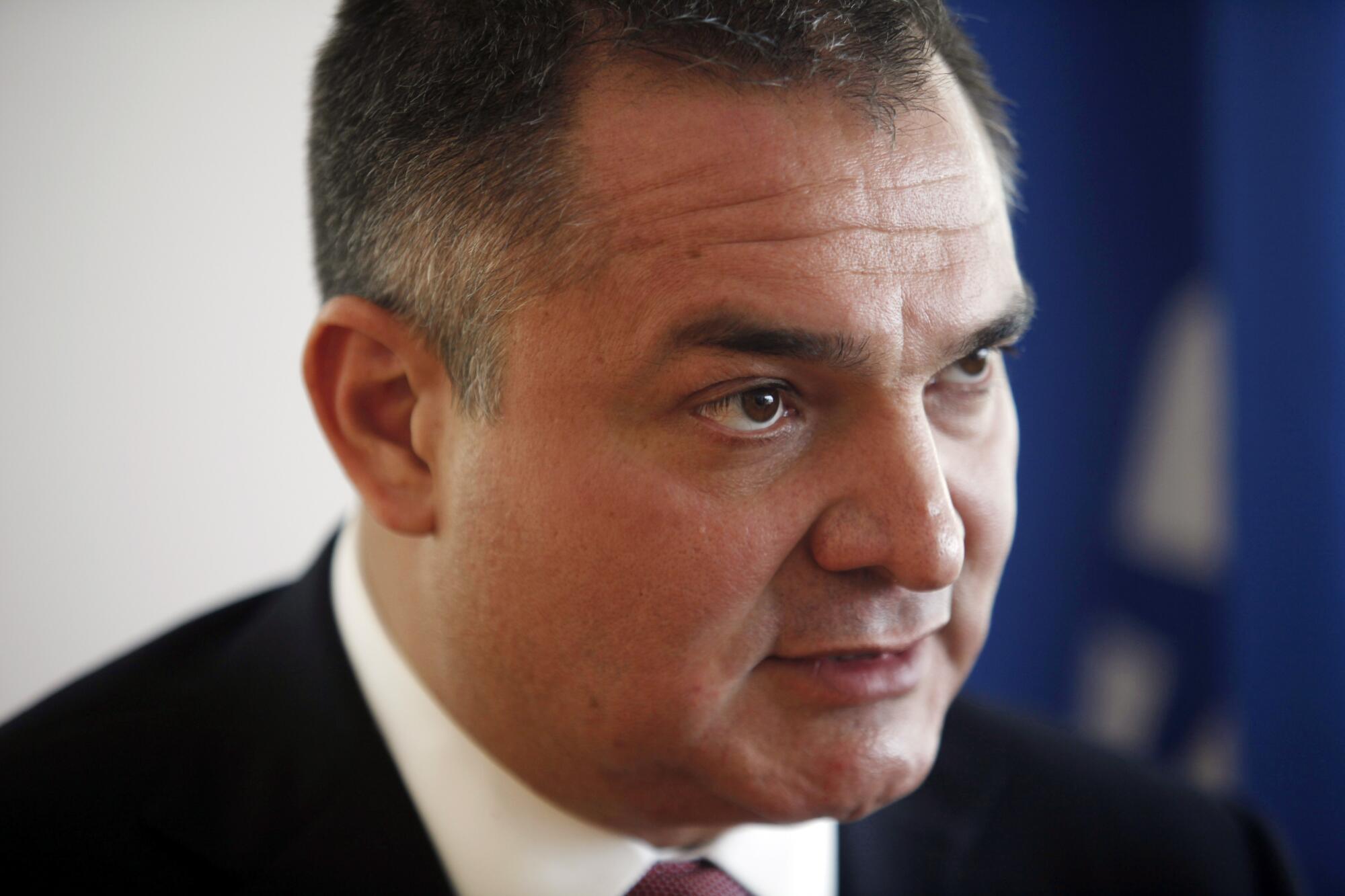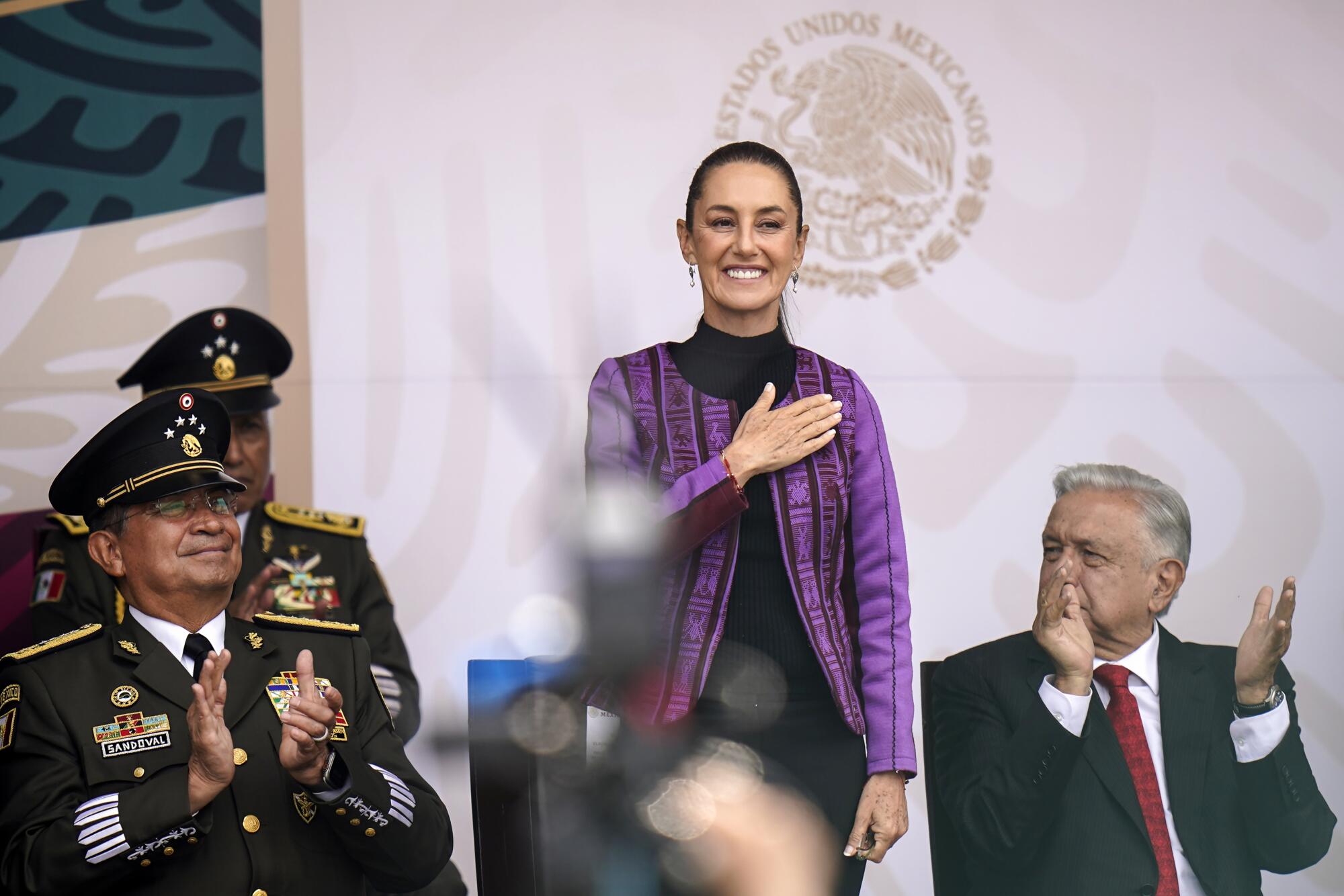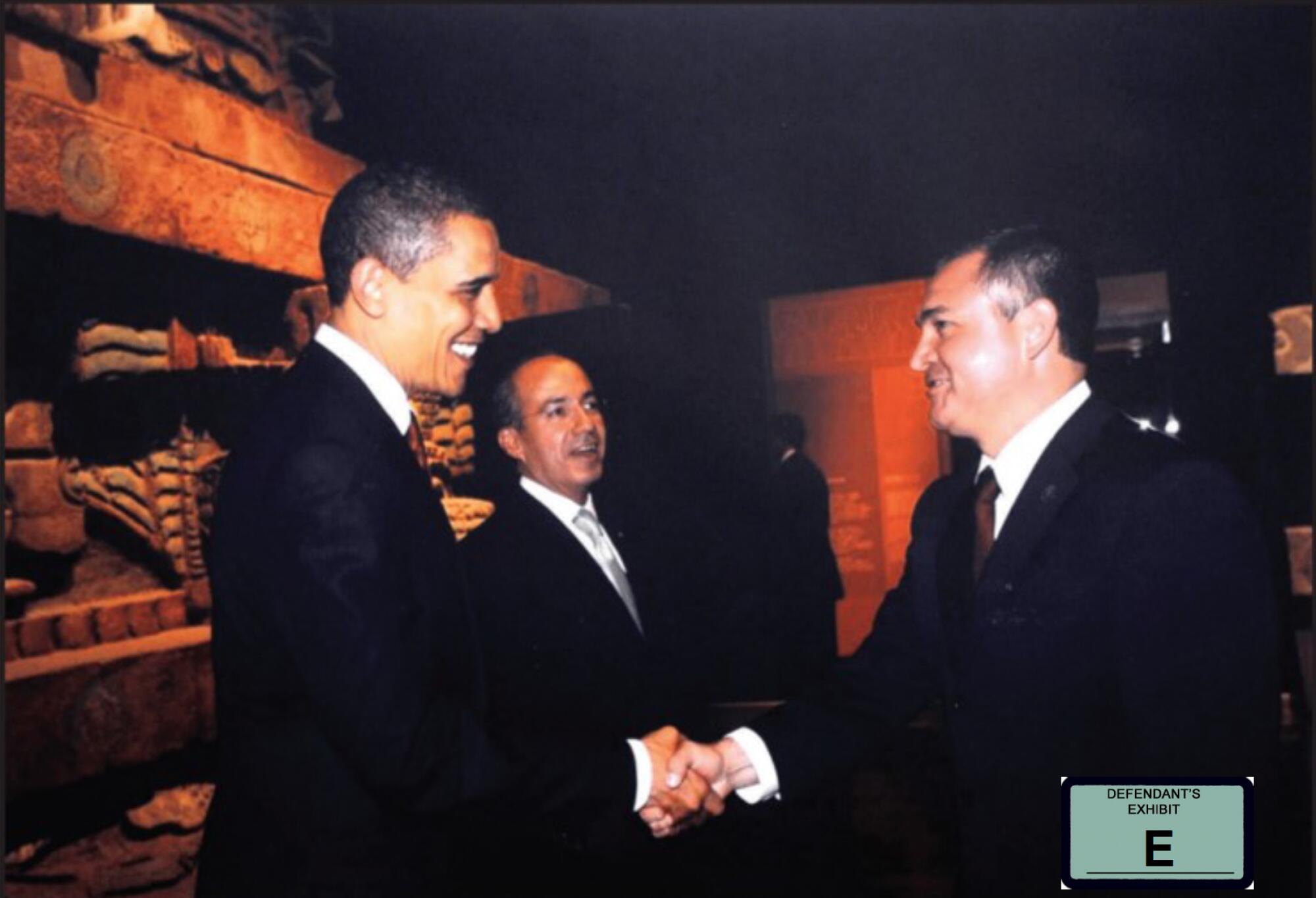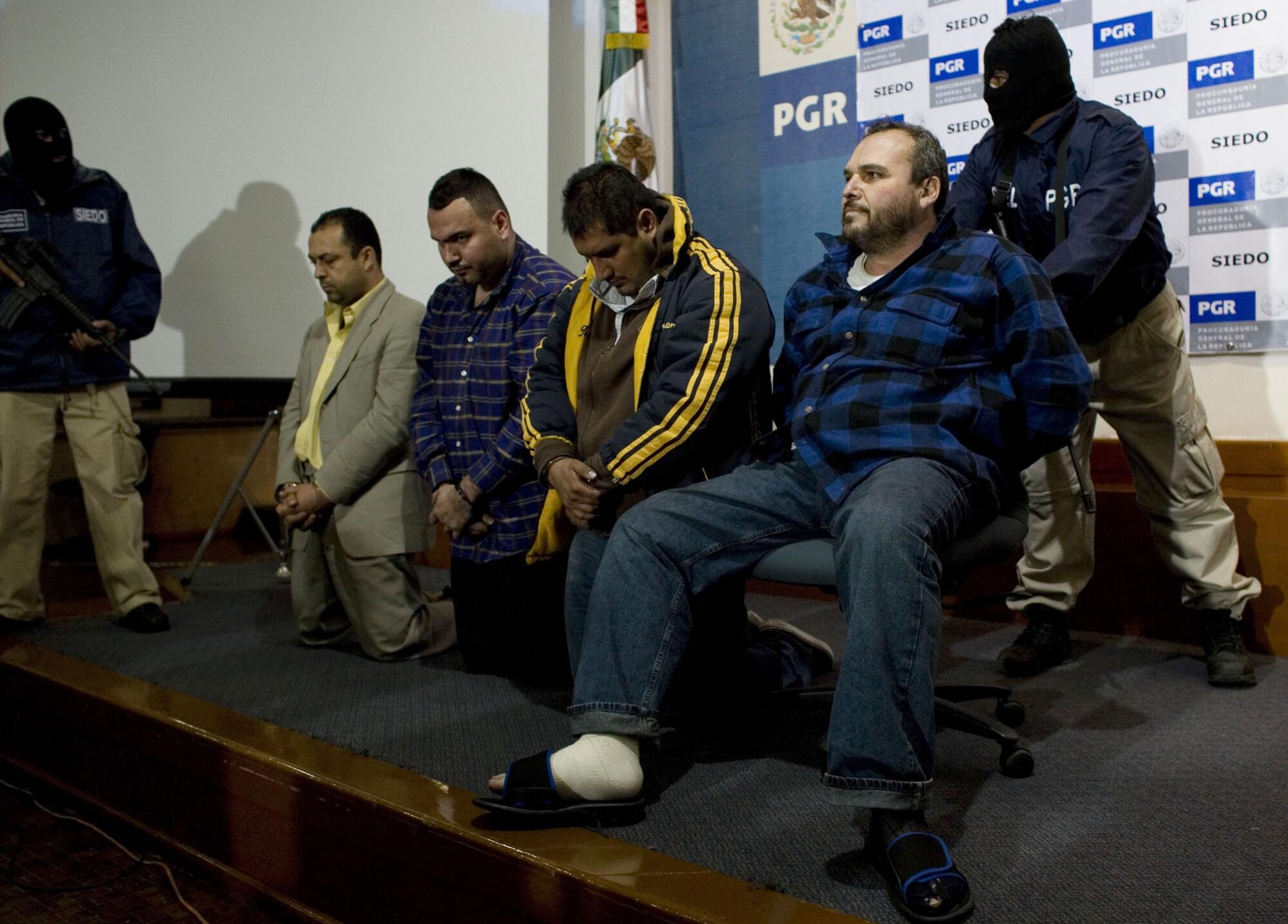
MEXICO CITY — Mexican President Andrés Manuel López Obrador has dismissed allegations from his country’s disgraced ex-security chief — jailed in the United States and facing a possible life sentence for corruption — that he has links to drug cartels.
“It’s very simple,” López Obrador told reporters Wednesday at his regular morning news conference. “Show the proof.”
The president denied charges that surfaced in a handwritten letter from Genaro García Luna sent Tuesday by his lawyer to a handful of news outlets, including The Times. A former public security minister, convicted last year of taking millions in bribes from leaders of the Sinaloa cartel, García Luna alleged that the current Mexican leader has connections with organized crime.

García Luna, 56, is among the highest-ranking former Mexican officials ever convicted of corruption in a U.S. court. He presented no proof to support his allegations but said “it is public knowledge” that López Obrador has ties to “the leaders of drug trafficking and their families.”
García Luna’s attorney, César de Castro, who also provided an English translation of the text, said his client asked to release the statement “given recent events in Mexico and here in the United States.”
García Luna is scheduled to be sentenced on Oct. 9 in U.S. District Court in Brooklyn, N.Y., before the judge who sentenced Joaquín “El Chapo” Guzmán to life in prison in 2019. García Luna, who witnesses testified took bribes to favor El Chapo’s cartel while overseeing federal law enforcement operations under then-President Felipe Calderón, could face a similar fate.
López Obrador, 70, whose six-year term ends Oct. 1, has repeatedly rejected reports of having received campaign funds from drug traffickers.
“In my decades as a leader I have endured many accusations,” the president said, noting that none had ever been proved.
He challenged García Luna to present evidence of corruption, alleging that the former security chief worked for previous governments that “spied” on him as a longtime leader of the political opposition.
“He writes that there are proofs, there are videos, calls, audios,” the president said, citing allegations in the ex-official’s letter. “It’s very simple, that he make them known. He has it all.”
The president has accused Calderón of committing election fraud to narrowly defeat him in the 2006 presidential race and of subsequently presiding over a “narco-state,” with García Luna as his corrupt top law enforcement wingman.
Calderón has repeatedly denied the allegations.
Meantime, President-elect Claudia Sheinbaum, who takes office Oct. 1, accused the ex-security chief of engaging in a “political” act designed to “smear” the reputation of her longtime political patron.

“Absolutely false,” Sheinbaum said of the allegations. “The president has never been involved in anything to do with any criminal.”
Evidence at García Luna’s trial showed he worked closely with U.S. authorities during his years in public office, which stretched back to the early 2000s, when then-President Vicente Fox put him in charge of a newly formed agency that was the Mexican equivalent of the FBI. He later rose to a Cabinet position under Calderón, and photos released in connection with his trial showed him meeting with prominent U.S. officials, including then-President Obama.

Several former high-ranking cartel members, cooperating in exchange for reduced sentences in their own cases, testified that García Luna and other top officials in Mexico’s federal police were in the pocket of drug kingpins. García Luna maintained in his letter that investigators had not found “a single peso-dollar” worth of payoffs in his bank accounts.
The trial witnesses included a brother of Sinaloa cartel co-founder Ismael “El Mayo” Zambada, who was asked on cross-examination whether he was aware of any bribes paid to López Obrador.
Jesús “El Rey” Zambada denied making any payments directly to the current president, but said under further questioning that he had given cash to a lawyer to help fund López Obrador’s 2006 campaign.
“I do remember paying [the lawyer] some money, that according to him, was for the campaign, but not [for] paying López Obrador,” Zambada testified.
El Mayo Zambada, 76, was arrested by U.S. agents in late July along with a 38-year-old son of El Chapo. Zambada has claimed he was lured to what he thought was a meeting with political leaders in the state of Sinaloa only to be “forcibly kidnapped” by Joaquín Guzmán López and flown to a small airport near El Paso.

After leaving office, García Luna moved to the United States and was running a Miami-based private security firm when he was arrested in December 2019. He claimed that federal prosecutors in New York initially offered a deal that would have allowed him to walk free after six months and receive “financial benefits” in exchange for his cooperation in other investigations, a deal he refused to take.
A spokesperson for the U.S. attorney’s office in Brooklyn, which handled his prosecution, declined to comment.
McDonnell reported from Mexico City, Hamilton from San Francisco. Special correspondent Cecilia Sánchez Vidal in Mexico City contributed to this report.
More to Read
Sign up for Essential California
The most important California stories and recommendations in your inbox every morning.
You may occasionally receive promotional content from the Los Angeles Times.











